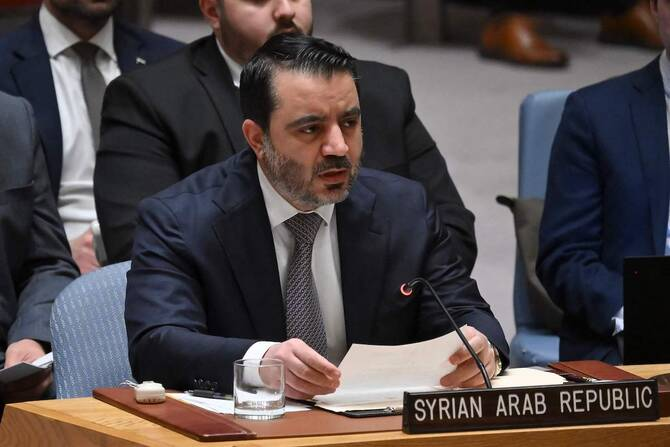Syria formally responded to a US list of eight conditions required for partial sanctions relief, claiming progress on several demands while urging “mutual understandings” to resolve contentious issues such as foreign fighters and counterterrorism coordination, according to Reuters.
A copy of the letter, reviewed by Reuters, reveals Damascus’s attempt to balance concessions with strategic ambiguity as it seeks to revive an economy crippled by 14 years of war and sanctions.
The US outlined its demands in March, including the destruction of remaining chemical weapons stockpiles, a ban on foreign nationals holding senior government roles, and cooperation on counterterrorism operations. While Syria asserted it had addressed “most” conditions, critical gaps remain.
A six-month sanctions exemption granted by Washington in January to facilitate aid has yielded minimal impact, prompting Damascus to push for a two-year extension in exchange for full compliance.
Progress and pitfalls in US-Syria negotiations
Syria‘s Foreign Minister Asaad Al-Shaibani, during his inaugural UN Security Council address on Friday, emphasised steps taken to meet US demands, such as establishing a liaison office to locate missing US journalist Austin Tice and collaborating with the global chemical weapons watchdog.
The letter, consistent with his public remarks, also notes the suspension of military rank promotions for foreign fighters, a nod to December’s controversial appointments of Uyghur, Jordanian, and Turkish militants to Syria’s armed forces.
What can be confirmed for now is that the issuance of military ranks has been suspended following the earlier announcement regarding the promotion of six individuals.
On counterterrorism, the letter vaguely pledges to prevent threats to Western interests and enact “appropriate legal measures,” but avoids granting explicit permission for US strikes, a red line for Damascus after years of foreign military interventions. “The matter requires mutual understandings,” the document states, reflecting Syria’s reluctance to legitimise unilateral American operations.
The letter seeks to reassure Washington on regional security, vowing Syria will not become a “source of threat” to Israel and detailing the formation of a committee to monitor Palestinian militant groups. Days after its submission, Syrian authorities detained two Islamic Jihad officials, signalling a crackdown on non-state armed factions.
However, significant hurdles persist, as senior diplomat and another source briefed on the letter said that while five demands were addressed “in full,” three remain unresolved, including the removal of foreign fighters and counterterrorism coordination. With Al-Shaibani expected to discuss the letter during his New York visit, analysts question whether Damascus’s gestures will suffice.
